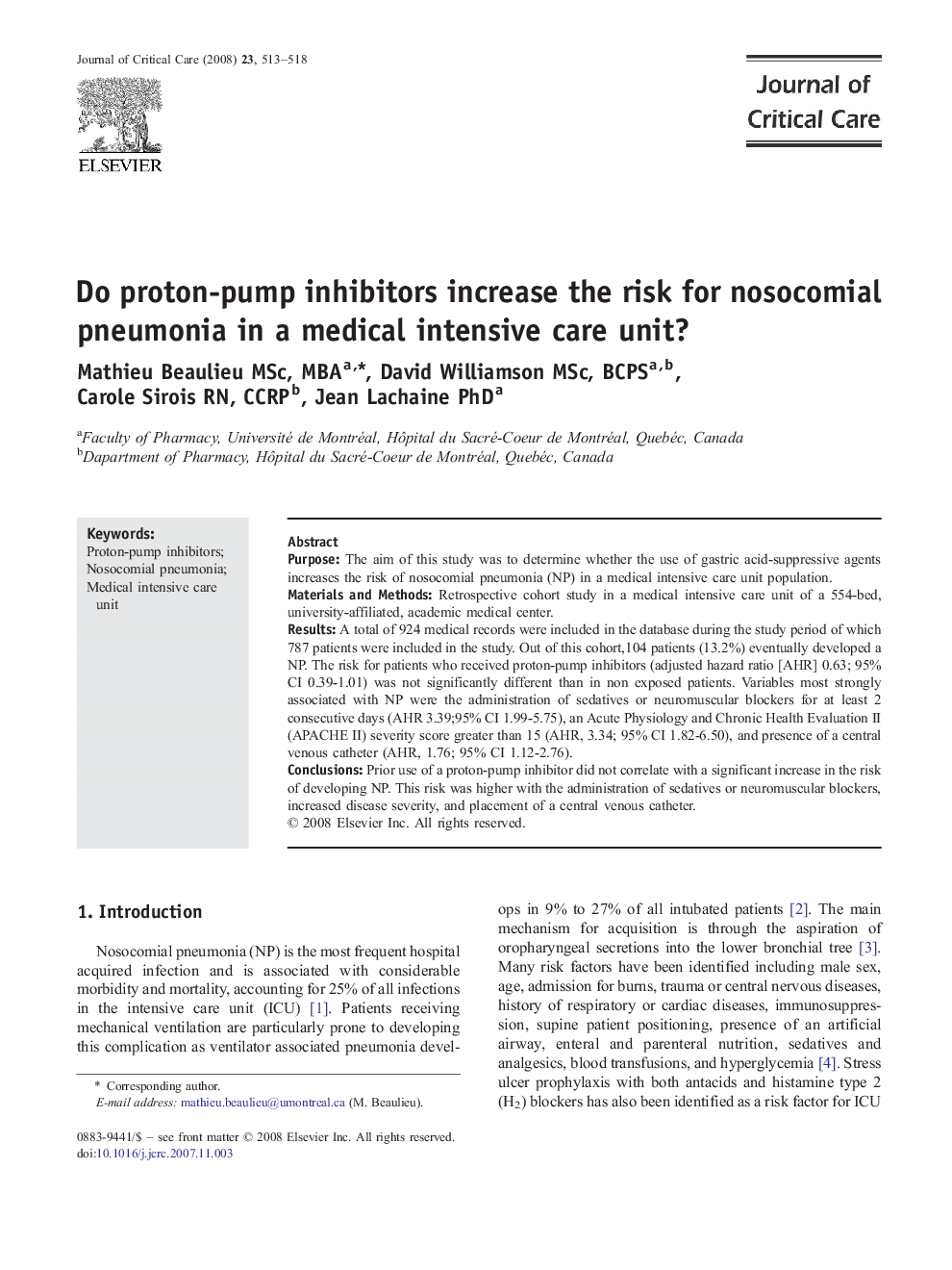| Article ID | Journal | Published Year | Pages | File Type |
|---|---|---|---|---|
| 2765247 | Journal of Critical Care | 2008 | 6 Pages |
PurposeThe aim of this study was to determine whether the use of gastric acid-suppressive agents increases the risk of nosocomial pneumonia (NP) in a medical intensive care unit population.Materials and MethodsRetrospective cohort study in a medical intensive care unit of a 554-bed, university-affiliated, academic medical center.ResultsA total of 924 medical records were included in the database during the study period of which 787 patients were included in the study. Out of this cohort,104 patients (13.2%) eventually developed a NP. The risk for patients who received proton-pump inhibitors (adjusted hazard ratio [AHR] 0.63; 95% CI 0.39-1.01) was not significantly different than in non exposed patients. Variables most strongly associated with NP were the administration of sedatives or neuromuscular blockers for at least 2 consecutive days (AHR 3.39;95% CI 1.99-5.75), an Acute Physiology and Chronic Health Evaluation II (APACHE II) severity score greater than 15 (AHR, 3.34; 95% CI 1.82-6.50), and presence of a central venous catheter (AHR, 1.76; 95% CI 1.12-2.76).ConclusionsPrior use of a proton-pump inhibitor did not correlate with a significant increase in the risk of developing NP. This risk was higher with the administration of sedatives or neuromuscular blockers, increased disease severity, and placement of a central venous catheter.
